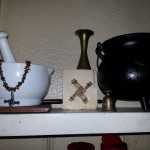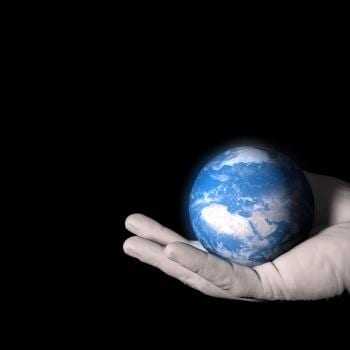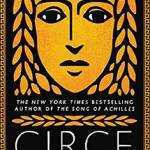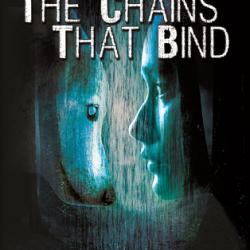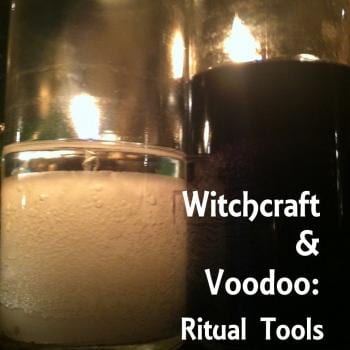Part Three: The Big Tent & the Four Poles of Paganism
John Halstead, who, for those who don’t know, is a fellow Patheos Pagan channel blogger, wrote about a concept which he called the Three Centers of Paganism[iii]. He believes that they can be shown as three interlocking circles, and most Paganisms will fall somewhere in the middle:
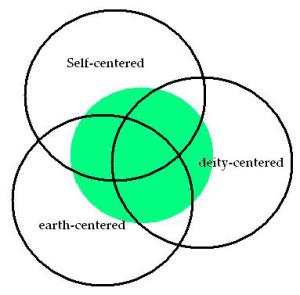
John Beckett, another Patheos writer, expanded it into four centers[iv]:
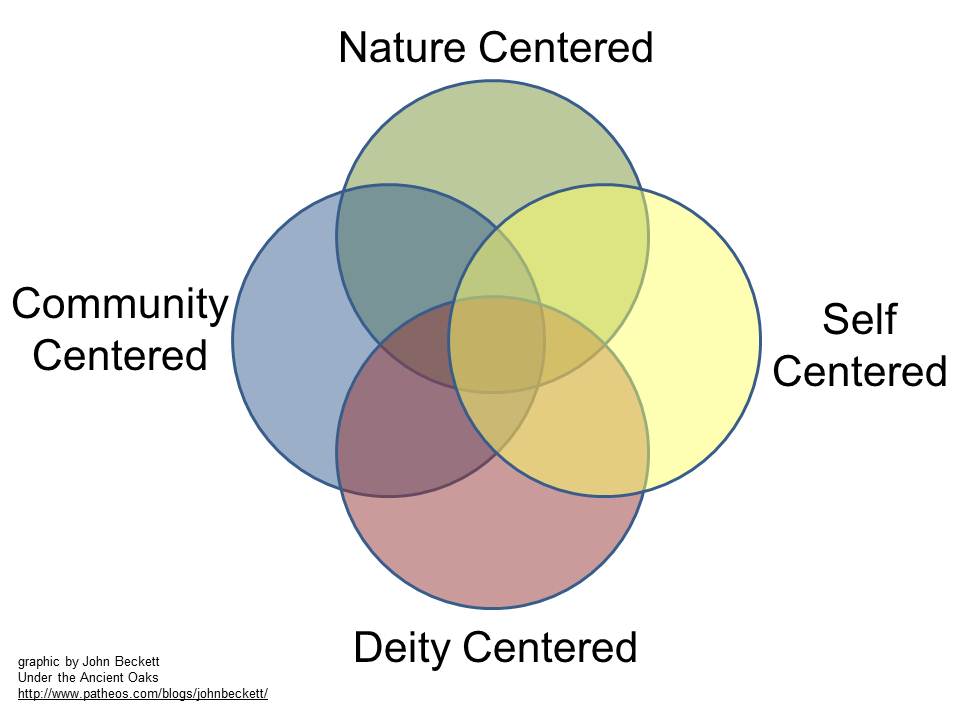
He likened the Pagan umbrella to being a very big circus tent[v] that sheltered many disparate groups, and he figured that the tent had four major poles around which we conglomerate. Most Pagan theology will include at least three out of the four. I think this is a really useful starting point for our conversation and I’d like to examine it in greater detail:
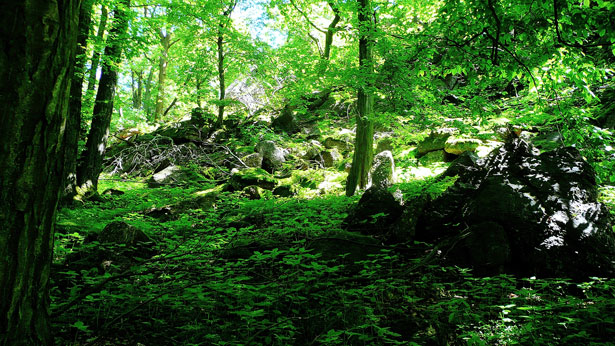
Nature
Obviously we go right to thinking about how many of us describe ourselves as being “earth-centered,” and that’s a big part of the Nature-oriented pole. But this also includes love of the body and being physical; celebrating rites of passage and the changes of the seasons; and wonder and awe for the cosmos and the natural universe. Related to these is the concept of imminent divinity; that is, the spirits, gods and holy powers we worship are part of this world and exist right here, not somewhere out there and beyond us. We give lesser and greater emphasis to these aspects but I think we can safely say that, understood that way, this is a core principle of Paganism.
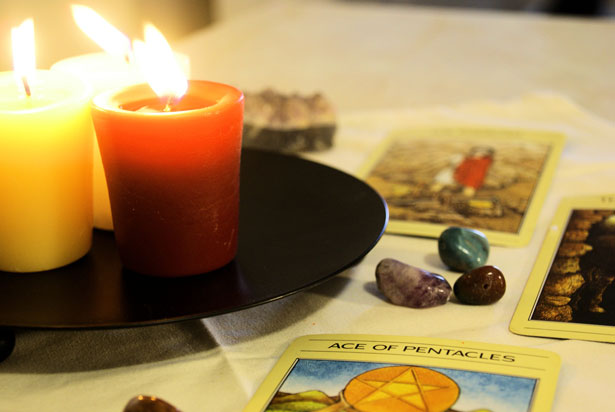
Self
At its heart, Paganism is a humanist faith group. Lately this has been used as a “polite” synonym for “atheist,” but that’s not the meaning of the word. What it means is “any system or mode of thought or action in which human interests, values, and dignity predominate,”[vi] or, in philosophy, “a variety of ethical theory and practice that emphasizes reason, scientific inquiry, and human fulfillment in the natural world and often rejects the importance of belief in God.”[vii] In other words, humanism believes that being fully human, and accepting and embracing the human experience and the nature of the human animal rather than trying to repress it, is the path to enlightenment and a good and ethical life.
Another element of the pole of Self is self-improvement. We are seeking to better ourselves. Our visions of what that entails sometimes differ, but having rejected the Christian doctrine of “original sin,” we spend a lot of effort in overcoming the programming of guilt and shame that our culture indoctrinates us with (see what I did there? In-DOCTRINE-ate) and aspiring to be good and noble people. Brendan Myers writes in The Other Side of Virtue[viii] about reawakening the Pagan virtue of “honour.” Pagans aspire to be honourable; though again, what that entails is individual and personal. Kerr Cuhulain has also written about Honour[ix].
We also talk about “following our bliss”; or, as the ritual magicians call it, our “True Will.” Some of us believe that each of us has a goal, a plan, that is our inner purpose; and pursuing this is the meaning of life. That, too, would be a Self-focused belief.
The third major area of Self-development is magick. Any tradition that makes use of magick, whether you believe it to be the manifestations of the powers of the gods, your own personal will, or the power of positive thinking and the placebo effect, magick is, by definition, a path of self-focus.
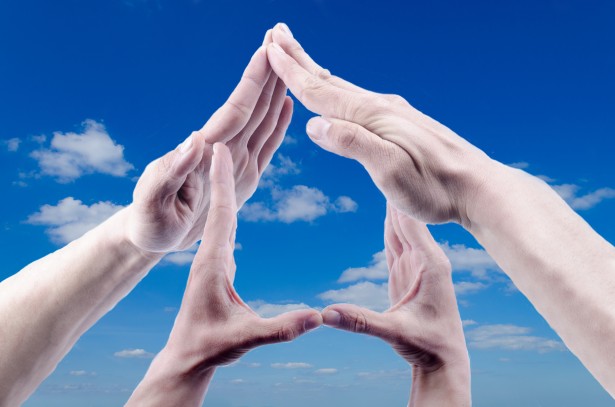
Community
For some, community and tribe are the focus of Paganism. These are the people who create Pagan festivals, found Pagan churches, and come to conferences like this. Community-centered Pagans are focused on coming together in fellowship and relating to others, so they concentrate on building relationships and structures and interacting with the outside world.
So this sounds like a bad joke, but: what do Asatru and Reclaiming have in common? The answer of course is that they are both community-centered Paganisms. Asatru is tribal, concerned with relationships with the ancestors and the good of the folk. Reclaiming builds big organizations and teaching structures and is charged with the energy of its activism.
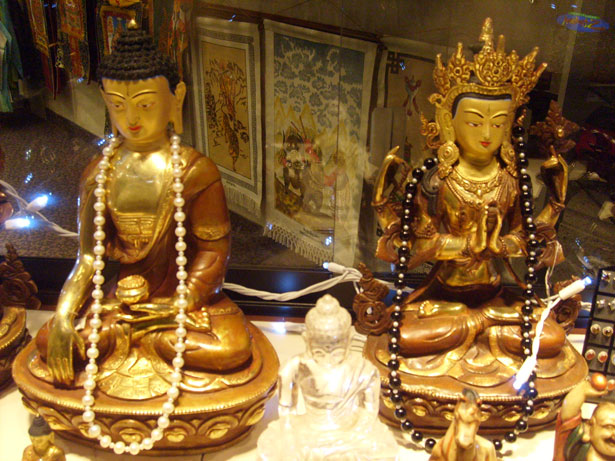
Deity
For some of us, Paganism is all about our relationship with the gods and the divine powers as we understand them. From sworn service to the Great Goddess to keeping altars for the lwa, we look to several colourful pantheons to inspire, guide and direct us. Deity-centered Paganism tends to include most Reconstructionist and Polytheist traditions.
Let’s consider the Pagan concept of divinity. First of all, let’s start with how many there are? Wiccans conceive of a binary image of the Divine; we honor both God and Goddess. But are these two separate beings, two aspects of a Divine One, or many gods and goddesses who are each separate and distinct individuals?
Let’s break it down further: what are the gods, exactly? Are they literal beings, metaphors, archetypes, or some personified consciousness that we will never truly understand?[x] If they are actual beings with agency as opposed to symbols, are they so alien that we humans will never truly grasp what it is that they are, or are they basically people without bodies; or are they something in between that?
How do the gods relate to each other? Are they all harmonious aspects of a whole that ultimately get along together no matter how you work with them? Do the different cultural names for an archetype (such as the Goddess of Love or the God of the Harvest) refer to the same being in different aspects, or are they all individuals? If they have personalities, how do those personalities interrelate (or clash?) Is it okay to call deities from different pantheons at the same time or is that an act of grave offense, or does that vary according to deity and pantheon?
What sort of relationship should we have with the Divine? Should we worship them with all due reverence? Should we merely respect them? Should we co-create with them? Are we their equals, their subjects, or something in between? How important are we compared to divinity? How important are we to the Divine?
How about other spiritual entities, such as angels, faeries, and so forth? Do they even exist? Are they gods of a sort or are they non-physical entities that rank on the same level we do (wherever we rank,) or do they fit somewhere else in the hierarchy (if you even believe in a hierarchy)?
What do the gods know? What kind of powers do they have? Do we have similar powers or different ones, or does all power come through them? Did we create them, did they create us, or did we create each other?
Let me ask you all a question, and I want you to consider the answer carefully; do you think belief in the gods is a necessary component of Paganism?
I ask because this is one of the biggest rifts in the Pagan world at the moment. On one side we have the Hard Polytheists. For them, the gods are individuals and They are real, and Paganism should be all about worship of the gods. Wiccans are insulting to them because of the hegemonic claim that all goddess are aspects of the Great Goddess, and Humanistic Pagans and Atheopagans, who believe in the sacred but not gods per se, are completely incomprehensible to them.
On the other side, many Atheopagans and Humanistic Pagans sneer at Hard Polytheists, Wiccans and Thelemites because gods, to them, are archetypes of the human psyche and belief in supernatural magick powers is just stupid.
How is it even possible for two such different theological views to co-exist with one another?
Let me ask you another question: Is it possible to be a monotheist and a Pagan?
Why do I ask? Because we have those too. Some Dianic witches believe that the Goddess is the totality of Creation. Some Feri practitioners believe that their Star Goddess holds that position and title. Some Wiccans believe that in the beginning, there was the Universal One, and that Source divided into the polarity of the Lady and the Lord. Some of us are even Christian Witches.
I think that one of the most beautiful things about Paganism is that you have to embrace a certain multi-layered level of thinking. Rather than considering that if one thing is true another must be false, Paganism asks you to accept that many contradictory things can be true at once. Rather than saying “either, or,” Pagans say, “yes, and.”
Think about where you stand within those four poles. What’s your primary focus? What’s your secondary focus? And so on? Or do you view yourself as being balanced between them?
We’re going to come back to this later so I’m just going to leave this diagram here for you to ponder.


